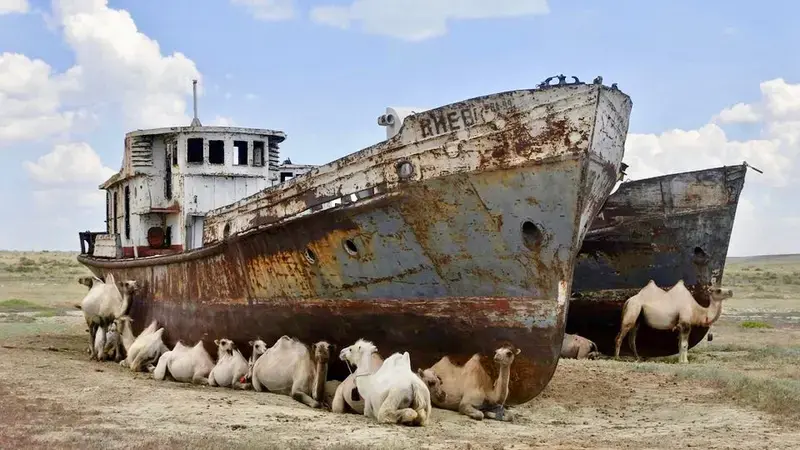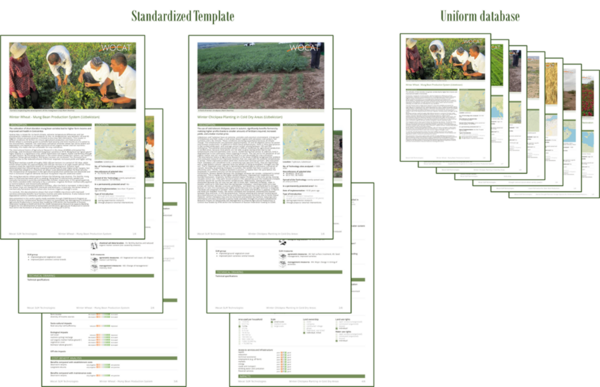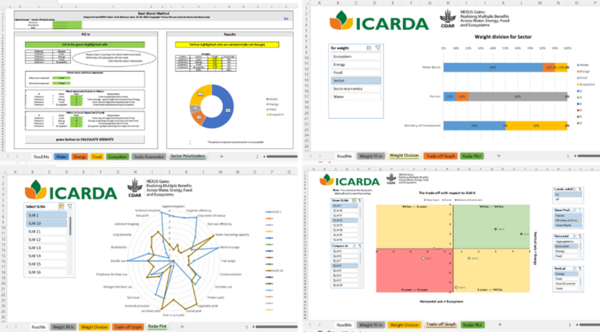Balancing Stakeholder Priorities for Sustainable Land Management

Environmental challenges in the Aral Sea basin have wide-ranging consequences, affecting local ecosystems, socioeconomics, climate, and the health of its inhabitants.
The Aral Sea basin in Central Asia has been plagued by severe and ongoing environmental degradation. The excessive diversion of water for cotton farming has caused the sea to retract dramatically, leading to ecological imbalances and the emergence of salt flats, desertification, and sand-dust storms.
In response to the urgent need for holistic approaches to tackle multiple challenges, the CGIAR NEXUS Gains Initiative (NGI) has emerged as a beacon of hope not only for the farmers living in the Aral Sea basin but as a living lab for similar regions worldwide. NGI combines cutting-edge research with expertise to develop innovative solutions that integrate the demands of water, energy, food, and ecosystems.
Within NGI, ICARDA supports decision-making processes for improved water productivity through sustainable land management (SLM). Our focus is on providing decision-makers with an intuitive and straightforward Decision Support System (DSS) that offers effective and proven land management options based on field data. The goal is to identify win-win solutions and trade-offs among selected interventions while considering economic profitability across all WEFE sectors.
To achieve this, we conducted a review and a series of studies of the definition and components of DSSs, as well as factors driving successful DSS application and data mining from the World Overview of Conservation Approaches and Technologies (WOCAT) database. The WOCAT database contains over 1,500 SLM practices documented in a consistent template, making it much easier to identify interventions that are suited to Central Asian contexts. By leveraging this wealth of information, ICARDA has identified more than 20 best practices suited to the Central Asian context, which the team further contextualized with project evidence in the region.
The DSS developed by ICARDA utilizes indicators across the WEFE domains, such as water, energy, food, and ecosystems, to illustrate trade-offs and synergies among various land management practices. Importantly, socioeconomic factors, including net farm income and gender equity, are also integrated into the decision-making process. To ensure stakeholder involvement and prioritize indicators and WEFE domains, ICARDA has employed the Best-Worst Method (BWM), a novel multi-criteria approach. By using targeted questionnaires, decision-makers can effectively weigh the priorities of different stakeholders, such as producers, conservationists, and ministries concerned with water allocation and usage.

With the conceptualization of the DSS complete and the initial version available, the next critical step is to pilot and test the new approach with stakeholders and decision-makers. In 2024, ICARDA plans to collaborate with representatives from the Ministries of Agriculture, Water Resources, Energy, and Environmental Protection in Uzbekistan to pilot the DSS. Their valuable feedback will contribute to refining and expanding the DSS, ensuring its relevance and widespread adoption. This comprehensive approach, encompassing data on land management practices, the DSS, and the accompanying BWM questionnaires, empowers decision-makers in the Aral Sea basin to make informed choices. By visualizing win-win situations, trade-offs, and synergies across stakeholders, land management practices, and the Water-Energy-Food-Ecosystem Nexus, the DSS aims to contribute to a more resilient and revitalized Aral Sea basin.

Contributors:
- Akmal Akramkhanov, Senior Scientist, Sustainable Land Management, ICARDA
- Joren Verbist, Technology Systematization Officer, Monitoring, Evaluation, and Learning (MEL), ICARDA
- Jonathan Lautze, Research Group Leader, Integrated Basin and Aquifer Management, IWMI
Acknowledgement: This DSS is inspired by the approach and methodology used in the thesis of Joren Verbist titled “Perspectives on the Economic Feasibility of Increasing Soil-Based Ecosystem Services on Arable Farms in The Netherlands” (2022), conducted at the Business Economics Group of Wageningen University under the supervision of professors H. Saatkamp and M. Kik.
